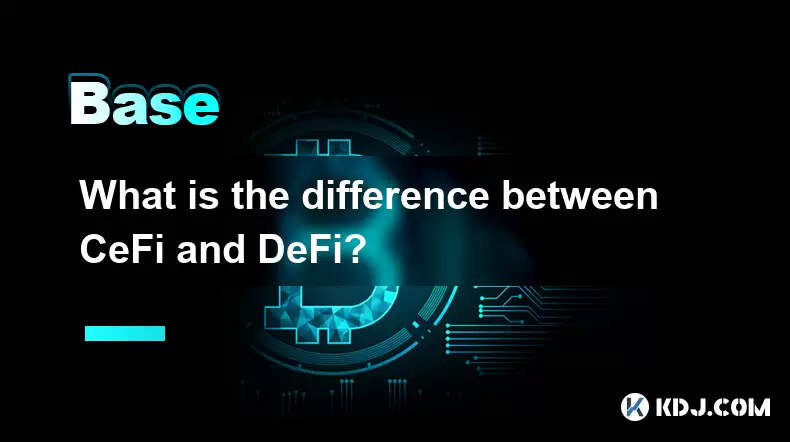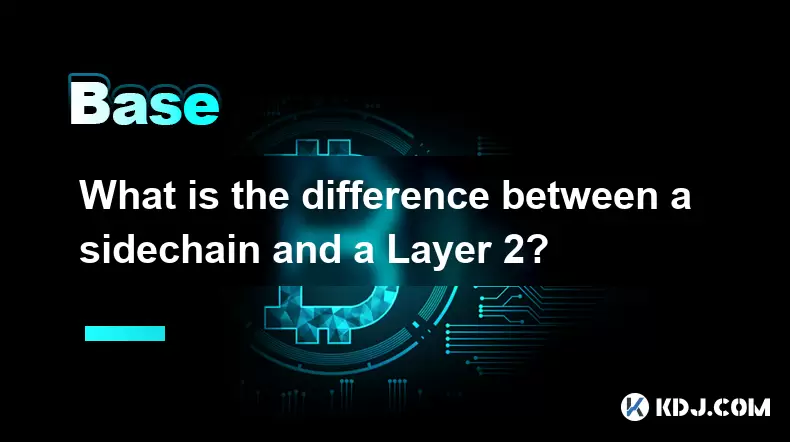-
 Bitcoin
Bitcoin $117400
-0.46% -
 Ethereum
Ethereum $3768
0.60% -
 XRP
XRP $3.551
2.09% -
 Tether USDt
Tether USDt $1.000
0.00% -
 Solana
Solana $203.2
11.30% -
 BNB
BNB $770.9
1.92% -
 USDC
USDC $0.9999
0.01% -
 Dogecoin
Dogecoin $0.2709
-0.02% -
 Cardano
Cardano $0.9024
4.49% -
 TRON
TRON $0.3139
0.60% -
 Hyperliquid
Hyperliquid $45.60
-1.41% -
 Stellar
Stellar $0.4730
-1.34% -
 Sui
Sui $4.025
2.15% -
 Chainlink
Chainlink $19.79
2.19% -
 Hedera
Hedera $0.2724
-2.39% -
 Avalanche
Avalanche $25.93
3.05% -
 Bitcoin Cash
Bitcoin Cash $524.0
-1.83% -
 Shiba Inu
Shiba Inu $0.00001558
0.50% -
 Litecoin
Litecoin $116.7
-0.30% -
 UNUS SED LEO
UNUS SED LEO $8.996
0.00% -
 Toncoin
Toncoin $3.334
1.83% -
 Polkadot
Polkadot $4.506
0.34% -
 Uniswap
Uniswap $10.99
4.83% -
 Ethena USDe
Ethena USDe $1.001
0.03% -
 Pepe
Pepe $0.00001461
3.17% -
 Monero
Monero $320.3
-1.01% -
 Bitget Token
Bitget Token $4.935
0.36% -
 Dai
Dai $0.9998
0.00% -
 Aave
Aave $322.4
-1.25% -
 Bittensor
Bittensor $455.6
9.33%
How is cryptocurrency taxed
Cryptocurrency transactions, including trades, purchases, and rewards, often trigger taxable events, requiring careful reporting and record-keeping to ensure compliance with tax laws.
Jul 14, 2025 at 03:49 am

Understanding the Taxation of Cryptocurrency
Cryptocurrency is treated as property by most tax authorities, including the Internal Revenue Service (IRS) in the United States. This classification means that every transaction involving digital assets can potentially trigger a taxable event. Unlike traditional currencies, cryptocurrencies are not considered legal tender in many jurisdictions, which places them under different tax categories, typically capital assets. This framework leads to capital gains taxes being applied when crypto is sold, traded, or used for purchases.
The taxation rules depend on the nature of the transaction and the jurisdiction where it occurs. For instance, if you hold Bitcoin (BTC) and later sell it at a profit, the gain may be taxed either as short-term or long-term capital gains depending on how long the asset was held before disposal. The holding period usually starts from the day after acquisition until the date of sale, and this distinction significantly affects the tax rate applied.
Identifying Taxable Events in Crypto Transactions
Not all cryptocurrency activities result in taxable events. However, several common scenarios do require reporting. Trading one cryptocurrency for another qualifies as a taxable transaction. For example, exchanging Ethereum (ETH) for Litecoin (LTC) is viewed as selling ETH for USD and then purchasing LTC, even though no fiat currency is directly involved.
Using cryptocurrency to purchase goods or services also triggers a taxable event. The fair market value of the item acquired determines the amount of gain or loss. Additionally, receiving cryptocurrency as payment for goods or services counts as ordinary income and must be reported based on the fair market value at the time of receipt.
Other taxable events include staking rewards, mining proceeds, and airdrops, which are generally treated as ordinary income at the time they are received. Understanding what constitutes a taxable event is crucial for accurate reporting and compliance with local tax laws.
Reporting Requirements and Documentation
Taxpayers who engage in cryptocurrency transactions are required to report these activities on their annual tax returns. In the U.S., the IRS requires taxpayers to answer a question regarding virtual currency transactions on Form 1040. Failure to disclose such activity can lead to penalties, interest charges, and potential audits.
To accurately calculate gains and losses, individuals should maintain detailed records of each transaction. These records should include the date of acquisition, cost basis, date of disposal, proceeds from the sale, and the fair market value in USD at the time of the transaction. Many crypto exchanges provide downloadable transaction histories, but users must ensure the data includes all necessary fields for tax reporting.
Tools such as cryptocurrency tax software can automate the process of tracking and calculating capital gains and losses. These tools often integrate directly with exchanges and wallets, making it easier to generate reports that comply with tax regulations.
Differentiating Between Short-Term and Long-Term Capital Gains
The length of time a cryptocurrency is held determines whether the gain is classified as short-term or long-term. If the holding period is one year or less, any gain is considered short-term and taxed at the individual’s ordinary income tax rate. If the asset is held for more than one year, the gain is classified as long-term and benefits from preferential tax rates, which are typically lower.
Short-term gains are taxed at higher rates, so timing disposals strategically can reduce overall tax liability. Investors should consider the tax implications before selling or trading assets. Holding for a longer duration may offer significant savings, especially for those in higher tax brackets.
It's important to note that losses can offset gains, and up to $3,000 of ordinary income per year can be deducted if net losses occur. Any excess losses can be carried forward to future years.
Tax Implications of Mining, Staking, and Airdrops
Earnings from mining, staking, and airdrops are subject to specific tax treatments. When an individual mines cryptocurrency, the fair market value of the coins mined on the date they are received becomes taxable income. Similarly, staking rewards are treated as ordinary income at the time they are credited to the wallet.
Airdrops follow a similar principle. The moment a taxpayer receives tokens through an airdrop, the value of those tokens is included in gross income. If the tokens are not immediately tradable, the tax may still apply once they become transferable or listed on an exchange.
For miners and stakers, maintaining accurate records of when rewards were received and their value at that time is essential for proper reporting. These earnings also establish the cost basis for future sales or trades, meaning that the initial valuation will impact capital gains calculations down the line.
Frequently Asked Questions
Q: Do I have to pay taxes if I only bought crypto but didn’t sell?
No, simply purchasing and holding cryptocurrency without selling or using it does not trigger a taxable event. Taxes are due only when the asset is disposed of in a taxable transaction.
Q: How do I determine the fair market value of my crypto on the day of a transaction?
You can use the price of the cryptocurrency in USD on a reputable exchange or pricing service at the time of the transaction. Some platforms automatically record this information for each trade.
Q: Are crypto-to-crypto trades taxable?
Yes, trading one cryptocurrency for another is considered a taxable event. You must calculate the gain or loss based on the USD value of the asset at the time of the trade.
Q: What happens if I lose money on my crypto investments?
You can use capital losses to offset capital gains. If your losses exceed your gains, you may deduct up to $3,000 from your ordinary income annually, with remaining losses carried forward to future years.
Disclaimer:info@kdj.com
The information provided is not trading advice. kdj.com does not assume any responsibility for any investments made based on the information provided in this article. Cryptocurrencies are highly volatile and it is highly recommended that you invest with caution after thorough research!
If you believe that the content used on this website infringes your copyright, please contact us immediately (info@kdj.com) and we will delete it promptly.
- BlockchainFX, PEPE, and USDT: What's the Buzz in the Crypto Jungle?
- 2025-07-22 18:50:12
- Ripple's RLUSD: Institutional Backing Fuels Stablecoin Ascent
- 2025-07-22 18:30:12
- Dogecoin, AI Coins, and the Future of Crypto: What's the Hype?
- 2025-07-22 18:30:12
- Weak Passwords, Hackers, and Company Breaches: A Tech Expert's Wake-Up Call
- 2025-07-22 18:50:12
- Jito Labs' BAM on Solana: A New Era for DeFi or Just Hype?
- 2025-07-22 18:55:13
- PENGU Memecoin's Daily Surge: Riding the Pudgy Penguins Wave
- 2025-07-22 19:00:13
Related knowledge

What is the difference between CeFi and DeFi?
Jul 22,2025 at 12:28am
Understanding CeFi and DeFiIn the world of cryptocurrency, CeFi (Centralized Finance) and DeFi (Decentralized Finance) represent two distinct financia...

What is the difference between a sidechain and a Layer 2?
Jul 20,2025 at 11:35pm
Understanding the Concept of SidechainsA sidechain is a separate blockchain that runs parallel to the main blockchain, typically the mainnet of a cryp...

What is the Inter-Blockchain Communication Protocol (IBC)?
Jul 19,2025 at 10:43am
Understanding the Inter-Blockchain Communication Protocol (IBC)The Inter-Blockchain Communication Protocol (IBC) is a cross-chain communication protoc...

How does sharding improve scalability?
Jul 20,2025 at 01:21am
Understanding Sharding in BlockchainSharding is a database partitioning technique that is increasingly being adopted in blockchain technology to enhan...

What is the "crypto trilemma" of scalability, security, and decentralization?
Jul 19,2025 at 06:28pm
Understanding the Concept of the Crypto TrilemmaThe crypto trilemma refers to the challenge of simultaneously achieving scalability, security, and dec...

What is a cliff and vesting schedule in tokenomics?
Jul 20,2025 at 10:28am
What Does a Cliff Mean in Tokenomics?In tokenomics, a cliff refers to a specific period during which token holders are not allowed to access or transf...

What is the difference between CeFi and DeFi?
Jul 22,2025 at 12:28am
Understanding CeFi and DeFiIn the world of cryptocurrency, CeFi (Centralized Finance) and DeFi (Decentralized Finance) represent two distinct financia...

What is the difference between a sidechain and a Layer 2?
Jul 20,2025 at 11:35pm
Understanding the Concept of SidechainsA sidechain is a separate blockchain that runs parallel to the main blockchain, typically the mainnet of a cryp...

What is the Inter-Blockchain Communication Protocol (IBC)?
Jul 19,2025 at 10:43am
Understanding the Inter-Blockchain Communication Protocol (IBC)The Inter-Blockchain Communication Protocol (IBC) is a cross-chain communication protoc...

How does sharding improve scalability?
Jul 20,2025 at 01:21am
Understanding Sharding in BlockchainSharding is a database partitioning technique that is increasingly being adopted in blockchain technology to enhan...

What is the "crypto trilemma" of scalability, security, and decentralization?
Jul 19,2025 at 06:28pm
Understanding the Concept of the Crypto TrilemmaThe crypto trilemma refers to the challenge of simultaneously achieving scalability, security, and dec...

What is a cliff and vesting schedule in tokenomics?
Jul 20,2025 at 10:28am
What Does a Cliff Mean in Tokenomics?In tokenomics, a cliff refers to a specific period during which token holders are not allowed to access or transf...
See all articles

























































































